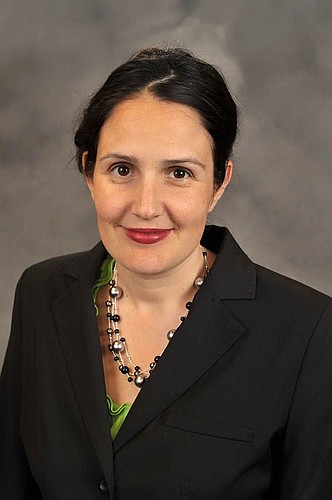
Professor Ericka Curran and her students at Florida Coastal School of Law go above and beyond with their pro bono cases.
Because of their work, dozens of refugees from countries fraught with political instability have been able to establish full and rewarding lives as United States citizens.
The path is not easy for young immigrants, but for the elderly and disabled, it is sometimes unnavigable.
Curran describes a recent case with a very happy ending.
What were the basic facts of your case?
Our client was an elderly disabled refugee from Iraq who came to the clinic through our Citizenship Day program.
She needed assistance with a disability waiver for the citizenship test and special accommodations.
Citizenship Day is designed to help people who do not need full representation. When clients come in and have greater needs, our clinical program at Coastal is able to offer full representation.
What were you able to accomplish for your client?
Her waiver was approved and she was naturalized in mid-December in a specially accommodated ceremony at the U.S. Citizenship and Immigration Services office in Jacksonville.
Why was the outcome important to your client?
Our client wanted to become a citizen because as a refugee the U.S. has offered her a home and security.
Our student Nadia Miranda, who was with the client at her oath ceremony, said the client was so excited to become a U.S. citizen that she kept kissing the flag.
Our client also was able to keep her Social Security benefits once she naturalized.
Why was the experience important to you? What did you (and your students) gain from the experience?
For our students, as well as for me, working with refugees provides a tremendous learning experience.
Students learn about the law, how to interview and advise diverse clients and how to work with government agencies like the Department of Homeland Security.
Personally, it is a deeply rewarding experience to represent refugees who are seeking to have a better life.
It reminds me how much we take for granted and how precious our freedom and security are.
What is the name of your firm/school? In what areas do you practice?
At Florida Coastal Immigrant and Human Rights Clinic, we represent immigrants with a focus on refugees and survivors of human trafficking.
What advice do you have for other attorneys considering pro bono involvement?
Pro bono work can be inspiring.
When I think I am having a tough day, all I have to do is think about the challenges my clients face and it humbles me.
Volunteer work provides attorneys a valuable way to learn new skills.
We have an amazing collaboration in Jacksonville with our Citizenship Day event where we are able to involve The Jacksonville Bar Association, the American Immigration Lawyers Association and Coastal Law students in helping immigrant residents of Jacksonville become new Americans.
We offer a free CLE to volunteer attorneys on how to file a naturalization application and expert immigration attorneys are on hand to support the project.
Gratitude and joy are apparent when a newly naturalized citizen kisses his or her new U.S. flag. It is not unusual for clients to be overwhelmed with appreciation.
The reward for the attorney comes in a nonmonetary form –– sincere thanks and deep gratitude.
For information on volunteer opportunities in the 4th Judicial Circuit, contact [email protected].